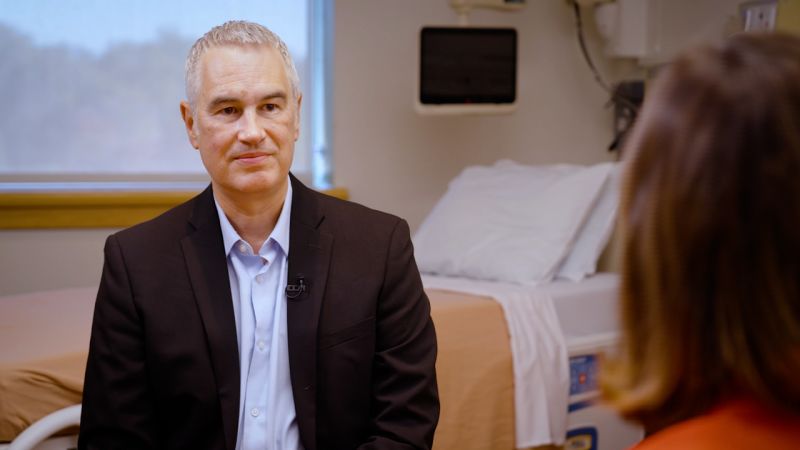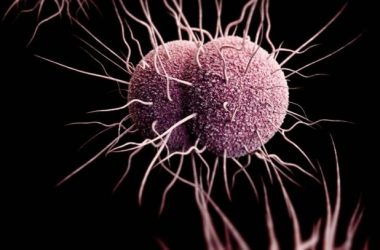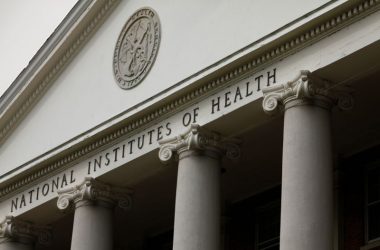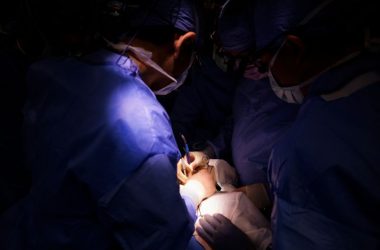When President Donald Trump named Robert F. Kennedy Jr. as his choice to lead the US Department of Health and Human Services, one group of health researchers was cautiously optimistic that their cause would finally have a champion at the highest levels of government: those focused on food and nutrition.
“These are the kinds of things I’ve been saying and writing about for decades!” Marion Nestle, a prominent food policy researcher, wrote in November of some of Kennedy’s stated Make America Healthy Again goals: removing ultraprocessed foods from schools, restricting purchases of soda with Supplemental Nutrition Assistance Program (SNAP) benefits and ridding government agencies of conflicts of interest.
Dr. Kevin Hall, a senior investigator at the US National Institutes of Health conducting some of the world’s only controlled trials on ultraprocessed foods, shared that optimism.
“When I saw the MAHA movement gaining bipartisan support last year, it was music to my ears,” Hall wrote in a letter late last month to Kennedy and incoming NIH Director Dr. Jay Bhattacharya. “I thought that after years of defunding human clinical research to understand metabolic disease perhaps NIH might finally prioritize the studies needed to uncover its root causes.”
Instead, Hall announced his early retirement Wednesday, after 21 years at the NIH, in a post on social media, citing censorship of communication of his research findings.
“Recent events have made me question whether NIH continues to be a place where I can freely conduct unbiased science,” Hall wrote, noting that it’s been his “life’s work” to “scientifically study how our food environment affects what we eat, and how what we eat affects our physiology” and that, given the new administration’s interest in those issues, he’d hoped to expand that research program.
But instead, the post continued, “I experienced censorship in the reporting of our research because of agency concerns that it did not appear to fully support preconceived narratives of my agency’s leadership about ultra-processed food addiction.”
Hall said he’d hoped that “was an aberration,” prompting him to write to his agency’s leadership asking to discuss those issues. He said he never received a response.
Hall requested a discussion with the health leaders of ideas to advance studies into how the food supply contributes to rising chronic disease rates – a common focus of Kennedy and the MAHA movement – and serious concerns about significant disruptions to research and censorship of communications of his findings.
“We have been hobbled on several occasions with intermittent inability to purchase food for our study participants or obtain research supplies,” he told Kennedy and Bhattacharya in the March 28 letter. “The future of our studies seems bleak given the inability to replace outgoing trainees who are the workhorses of our research.”
Further, Hall wrote, “I’ve also experienced incidences of censorship in my ability to discuss our research.”
He detailed what he called an intervention by HHS “regarding media coverage of our study on brain responses to ultra-processed foods.”
The study, published March 4 in the journal Cell Metabolism, used brain imaging to see whether consuming ultraprocessed milkshakes high in fat and sugar caused reactions in dopamine similar to addictive drugs.
“Surprisingly,” Hall and his team wrote in the paper, they didn’t, at least not large enough to be picked up on PET scans.
“HHS denied an interview request from the New York Times and contacted the reporter directly to downplay our study results because our data might be viewed as failing to support preconceived HHS narratives about ultra-processed food addiction,” Hall said in the letter. “My written responses to the reporter’s questions were edited and submitted without my approval.”
Hall added in an interview that he experienced censorship of his work in other instances as well.
“For the first time in my 21-year career, I was told I wasn’t allowed to present data on the topic of ultraprocessed foods,” at a conference either in person or remotely, Hall said. “There was no reason given at that time.”
“Then there was some interference in a paper where I was told we had to change the content of the paper or I would have to remove myself as being an author,” Hall continued, noting it was a section on health equity regarding ultraprocessed foods deemed to violate an executive order. “To avoid censoring a co-author who was not in the NIH who wrote that section of the paper, I withdrew myself as an author.”
He said those experiences were “quite worrying to me,” and “made me think if I was to continue and experience this, I’m going to end up really hating my job.”
But Bhattacharya, who was sworn in as NIH director on April 1, has said it is a key priority to end what he sees as censorship at the federal research agency, claiming during his confirmation hearing that the Biden administration sought to censor him for divergent views on how to respond to the Covid-19 pandemic.
“We’ll never use this agency to censor scientists who disagree,” Bhattacharya said in an interview on Fox News. “If scientists are censored, we actually can’t have excellent science.”
And food and nutrition researchers had high hopes for Kennedy, despite the broader public health world’s deep concerns about his history of spreading misinformation about vaccines – worries that have only increased as a deadly measles outbreak grows in Texas and surrounding states.
On food, Kennedy’s priorities have appeared more aligned with most academic health researchers’.
“I was hoping the administration would come in and say … ‘this is a big priority for us. We want to do this kind of study,’ ” said Jerold Mande, who served in food and nutrition policy roles in the administrations of George H.W. Bush, Bill Clinton and Barack Obama and is now an adjunct professor of nutrition at the Harvard T.H. Chan School of Public Health and CEO of the nonprofit Nourish Science. “They’ve said it’s a priority: In order to take steps to make a difference here, we need the science.”
What sets Hall’s work apart, Mande said, is that he runs randomized, controlled clinical trials – considered the gold standard of research – to understand the effects of ultraprocessed foods on the body. Ultraprocessed foods are those that include industrially created ingredients that can’t be made in a regular home kitchen and are estimated to make up about 70% of the US food supply.
These kinds of trials are especially difficult to do in nutrition because participants’ environments must be tightly controlled so their food can be monitored down to the gram; in Hall’s studies, participants live at the NIH clinical center – essentially a hospital – for weeks at a time.
The results of Hall’s first such trial were published in 2019 and showed that people who ate a diet of mostly ultraprocessed foods consumed an additional 500 calories a day and gained about 2 pounds, on average, over the course of two weeks, compared with when they ate diets composed mainly of minimally processed foods, matched for nutrients.
The study “helped provide the causal link in the established epidemiological association between obesity and diets high in ultra-processed foods,” Hall told Kennedy and Bhattacharya in his letter.
Nestle, a professor emerita at New York University and author of the book “Food Politics,” called it one of the most important nutrition studies done since the discovery of vitamins.
On Thursday, she called Hall’s early retirement a “national tragedy,” writing that it casts doubt on the MAHA movement’s credibility.
“I view his resignation under these circumstances as an act of extraordinary courage and scientific integrity,” Nestle wrote on her Food Politics blog.
Hall, whose best-known work also includes a series of studies following the outcomes of participants in the show “The Biggest Loser,” has been in the midst of a follow-up study at NIH to understand what it is about ultraprocessed foods that causes people to overeat them. That’s despite, he wrote in his letter, a 30% cut to the beds in the NIH clinical center available to conduct the trials.
“His study raises this question – ‘What if it is the processing?’ ” – that drives overeating of ultraprocessed foods, Mande said. “Then you have an administration coming in that’s saying the same thing, and you have a great story for them to tell: that the last administration dragged its feet on this. Kevin’s study was done, in 2019 it came out; it should have been replicated the next year, and hasn’t been.”
Hall wrote that interim results from the ongoing study “suggest that we are making substantial progress identifying exactly how ultra-processed foods cause overeating and weight gain,” but he notes that “there is still so much more to learn.”
During his confirmation hearings, Kennedy told lawmakers that the most important action the federal government could take to improve the nation’s nutrition would be “to deploy NIH and FDA to [do] the research to understand the relationship between these different food additives and chronic disease, so that Americans understand it.”
“You should know what the impacts are on your family and on your health,” Kennedy said.
Just over two months after Kennedy was sworn in, Hall – the NIH’s top nutrition researcher working on those answers – is leaving.
In his letter, Hall noted “the short time period” of deadlines to accept voluntary early retirement, part of the federal government’s push to shed workers; HHS said it cut 25% of its staff through a combination of voluntary departures like Hall’s and a mass Reduction in Force this month.
In his social media post Wednesday, Hall said he “felt compelled to accept early retirement to preserve health insurance for my family,” noting that he’d lose that benefit if he resigned later “in protest of any future meddling or censorship.”
He said he doesn’t have plans for next steps in his career, given how quickly he had to make the decision. But in both his post and his letter to Kennedy and Bhattacharya, he emphasized that he hopes to go back.
“Perhaps I could soon return to government service and lead an effort to expand on our research to rapidly determine what are the most important factors in our toxic food environment that are making Americans chronically sick,” Hall wrote last month.
For now, he said, his experiences “have led me to believe that NIH may be a difficult place to continue the gold-standard unbiased science required to inform the needed transformation of our food supply to make Americans healthy.”
This story has been updated with additional information.





